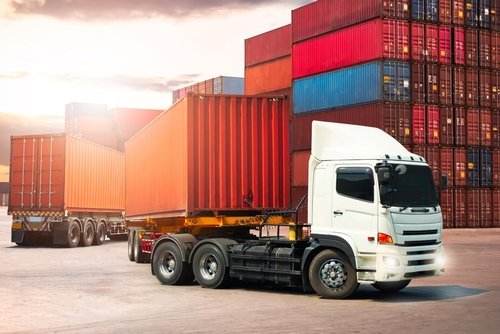U.S. Supreme Court
Does Trump have power to unilaterally impose tariffs? Supreme Court will decide

The U.S. Supreme Court on Tuesday agreed to decide whether President Donald Trump may use emergency powers granted in a 1977 law to impose tariffs without congressional authorization. (Photo from Shutterstock)
The U.S. Supreme Court on Tuesday agreed to decide whether President Donald Trump may use emergency powers granted in a 1977 law to impose tariffs without congressional authorization.
The high court granted cert in two cases, consolidated them and put them on the fast track in its Sept. 9 order. The cases are “setting the stage for a major ruling on presidential power,” SCOTUSblog reports.
The tariffs fall into two categories, SCOTUSblog explains. The first, trafficking tariffs, apply to imports from Canada, China and Mexico—countries said to be failing to stop fentanyl from entering the United States. The second, reciprocal tariffs, apply to “virtually all countries” and cite trade deficits as the justification, according to SCOTUSblog.
One of the cases, Learning Resources v. Trump, was filed by two toymakers, Law360 reports. The other, Trump v. V.O.S., was a consolidated case filed by the Liberty Justice Center, a nonprofit, nonpartisan public interest litigation center, on behalf of five small business businesses and by 12 states, the Volokh Conspiracy reports in a post by Ilya Somin, a professor at the George Mason University Antonin Scalia Law School and one of the lawyers working with the Liberty Justice Center.
“Fundamentally, these cases come down to whether the president has virtually unlimited power to impose taxes in the form of tariffs on the American people, much like an absolute monarch,” Somin wrote at the Volokh Conspiracy.
The government argues that the tariffs “are promoting peace and unprecedented economic prosperity, and that the denial of tariff authority would expose our nation to trade retaliation without effective defenses and thrust America back to the brink of economic catastrophe.”
The lawsuits challenging the tariffs argue that Trump does not have the power to impose tariffs under the International Emergency Economic Powers Act of 1977. The law allows a president to invoke emergency powers in response to an “unusual and extraordinary threat” to the economy outside the United States. During such emergencies, a president can “regulate … importation” of “property in which any foreign country or a national thereof has any interest.”
The plaintiffs argue that the IEEPA doesn’t authorize tariffs, and if it did, it would be an unconstitutional delegation of Congress’ power to impose tariffs.
The U.S. Court of Appeals for the Federal Circuit ruled 7-4 for challengers in Trump v. V.O.S. on Aug. 29, holding that the IEEPA’s grant of presidential authority to “regulate” imports does not authorize Trump’s “unbounded” and “ever-changing” tariffs, Law.com reports. The decision affirmed a ruling by the U.S. Court of International Trade.
In the other case, the U.S. Court of Appeals for the District of Columbia Circuit had not yet ruled, Law360 reports. The government argues that the toymakers should have filed their suit in the Court of International Trade, rather than the U.S. District Court for the District of Columbia.
According to Bloomberg Law, the cases could affect “trillions of dollars in international commerce.” A decision for the challengers “would cut the current average U.S. effective tariff rate of 16.3% by at least half and could force the U.S. to refund tens of billions of dollars,” the publication reports, citing information from its economics analyst.
See also:
This ‘reinvigorated’ doctrine could be used to challenge Trump’s tariffs
What you need to know about the court battle over Trump’s tariffs
Write a letter to the editor, share a story tip or update, or report an error.

